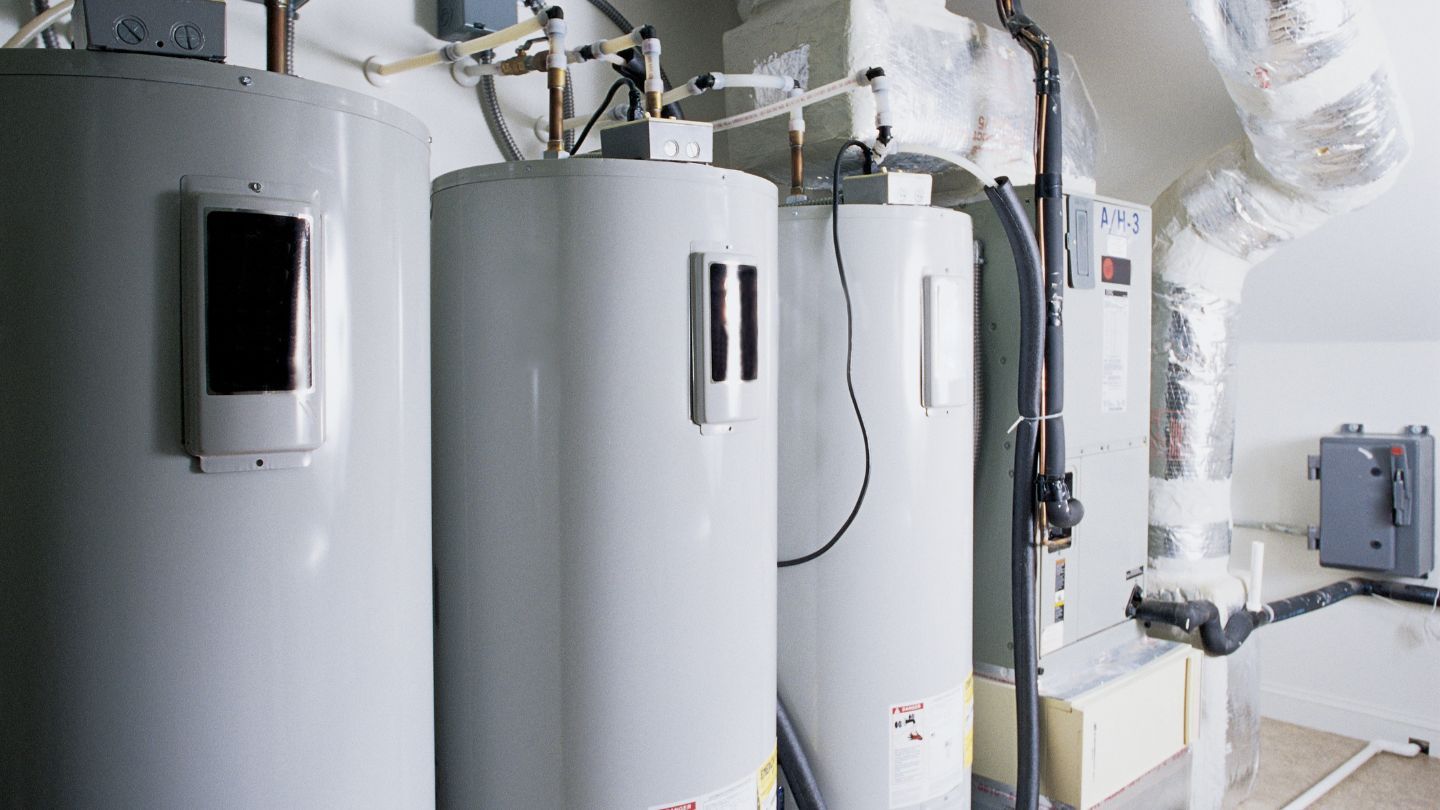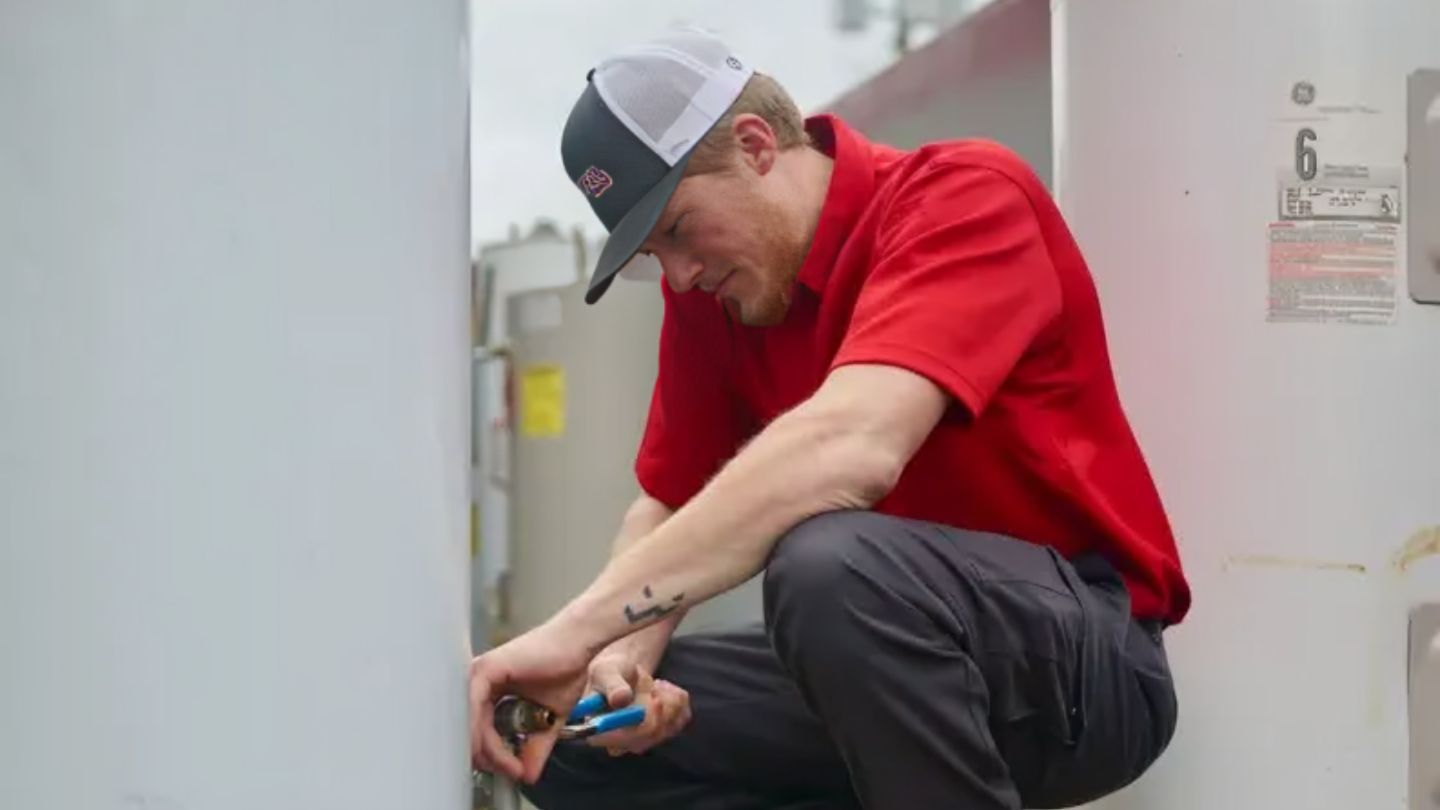Ever wondered how long it takes for a water heater to heat up? Whether
it's a gas water heater, electric hot water heater, or tankless water heater,
the time it takes varies depending on the type and other influencing factors.
Gas water heaters typically heat water in 30 to 40 minutes, while electric
water heaters may require 60 to 80 minutes. Tankless water heaters, on the
other hand, provide hot water almost instantly. Let's explore more about water
heater types, factors that affect heating times, and tips to enhance
performance.
Key Takeaways
- Gas
water heaters heat water faster than electric water heaters, typically in
30-40 minutes.
- Electric
hot water heaters take longer, often 60-150 minutes, depending on the size
and capacity.
- Tankless
water heaters provide heated water instantly, making them an efficient
option for homes.
- Factors
like tank size, incoming cold-water temperature, and heating elements
impact how long it takes for a water heater to heat up.
- Regular
maintenance ensures your water heater functions properly and extends its
lifespan.
Heating Times for Different Types of Water Heaters
The time it takes for a water heater to heat water depends on the type of
water heater. Whether you have a gas water heater, electric water heater, or
tankless unit, understanding heating times helps you plan your usage.
Gas Water Heaters
Gas water heaters are known for their speed and efficiency. A standard
40-gallon gas water heater typically takes 30 to 40 minutes to heat water.
These units use a gas burner at the bottom of the tank to heat the water
quickly, making them ideal for households that need more hot water in less
time.
Electric Water Heaters
Electric water heaters are slower but reliable. A typical electric hot
water heater requires 60 to 80 minutes to heat a 40-50-gallon tank. Larger
tanks may take longer. Electric water heaters use heating elements instead of
burners, which explains the extended heating time.
Tankless Water Heaters
Tankless water heaters, also known as on-demand water heaters, heat
water as it flows through the unit. This means there's no waiting for a tank to
fill or heat up. While they provide hot water in a few seconds, their
efficiency depends on your water usage. A tankless unit is an excellent choice
for homes that want energy savings and a consistent supply of heated water.
Factors That Influence Heating Times

Several factors affect how long it takes for a water heater to heat
water:
- Tank
Size: Larger tanks, such as 80-gallon tank water
heaters, take longer to heat than smaller ones.
- Tank
Type: The type of tank water heater, whether
electric or gas, also impacts the heating time and recovery rate.
- Fuel
Source: Gas water heaters heat faster than electric
water heaters due to the power of the gas burner.
- Incoming
Water Temperature: Cold water in winter takes more time to
heat compared to warmer months.
- Heating
Elements: The wattage of the heating element in
electric water heaters affects heating speed.
- First-Hour
Rating: This indicates how many gallons of hot water
the unit can supply in the first hour after starting.
Common Issues Slowing Down Water Heating
If your water heater is taking longer than usual to heat water, it may
not be functioning properly. Common issues include:
- Sediment
Build-Up: Minerals can accumulate in the water heater
tank, reducing efficiency. Flushing the tank regularly prevents this.
- Worn-Out
Heating Elements: Electric water heaters with failing
heating elements take longer to heat water. Replacing the heating element
resolves this.
- Dirty
Gas Burners: For gas water heaters, a dirty burner reduces
heat production, increasing recovery time.
Tips to Speed Up Water Heating
You can reduce heating time and save money with a few simple
adjustments:
- Insulate
Hot Water Pipes: This keeps heat from escaping, delivering
warm water faster.
- Install
a Hot Water Recirculation Pump: This ensures
instant hot water at faucets and showers.
- Upgrade
to a Tankless Water Heater: Enjoy nearly
instant hot water and improved energy efficiency.
- Regular
Maintenance: Flush your water heater tank annually and
clean the gas burner to ensure the system is working properly.
Maintenance Practices for Optimal Performance
Proper maintenance is key to extending the lifespan of your water heater
and ensuring efficient performance:
- Flush
the Tank: Remove sediment buildup to keep your water
heater working efficiently.
- Inspect
Heating Elements: Check electric water heaters for wear
and replace heating elements as needed.
- Clean
Gas Burners: Regularly clean gas burners to maintain
heating efficiency.
Emergency Situations: When to Call for Immediate Assistance

If you experience any of the following emergency situations, it's
essential to call a professional for immediate assistance:
- Leaks
or water damage: If you notice water leaking from the
tank or pipes, turn off the power and water supply to the heater and call
a professional.
- No
hot water: If you're not getting any hot water, check the
power and gas supply to the heater. If the issue persists, call a
professional.
- Strange
noises: If you hear unusual noises coming from the
heater, such as banging or gurgling, turn off the power and call a
professional.
- Overheating:
If the heater is overheating, turn off the
power and call a professional to prevent damage or injury.
By understanding your water heater and being aware of potential issues,
you can ensure it runs efficiently and safely. Regular maintenance and
inspections can also help prevent emergency situations and extend the lifespan
of your water heater.
When to Consider Water Heater Replacement
Knowing when to replace your water heater can save you from unexpected
cold showers. Signs your unit is on its last legs include:
- Frequent
Repairs: If your water heater needs constant repairs,
it's time for a new water heater.
- Insufficient
Hot Water: If your water heater tank can no longer
provide adequate hot water, consider upgrading.
- Age
of the Unit: Most water heaters last around ten years. An
old water heater may struggle to function properly.
Read more: 5 Signs Your Water Heater Needs Replacement
Summary
Understanding how long it takes for a water heater to heat up, along
with the factors influencing heating times and common issues, can significantly
enhance your ability to maintain an efficient water heater. Whether you prefer
the rapid heating capabilities of a gas water heater or the convenience of a
tankless water heater, regular maintenance and timely upgrades are key to
ensuring consistent performance.
At A-Total Plumbing, we provide expert repair, maintenance, and water
heater replacement services in Kennesaw and
nearby areas. From fixing heating elements to installing a new tankless unit, our team is dedicated to ensuring you have hot water whenever you need it. Whether you're dealing with House Leaks, Yard Leaks, Water Heater Leaks, Whole House Stoppages, Hot Water Issues, Clogged Drains, Toilet Problems, Faucets, or Gas Leaks, our expert team is here to provide reliable solutions for all your plumbing needs.
Contact us today to discover how we can meet your hot water needs and make your
home more comfortable!

